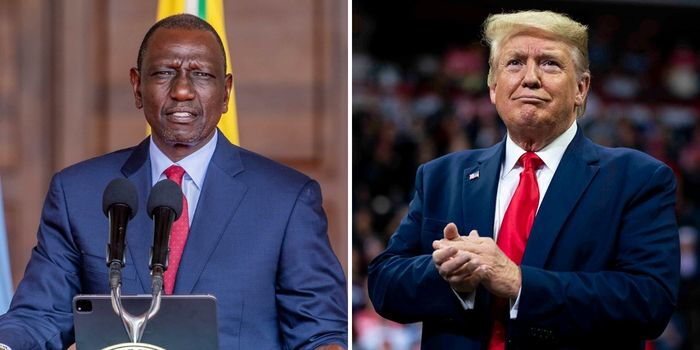The African Growth and Opportunity Act (AGOA) officially expired on Tuesday, September 30, ending nearly two decades of tariff-free trade between the United States and more than 30 African countries. For Kenya, the deal has been vital, especially for textiles, tea, and coffee exports.
Since AGOA’s inception, Kenya’s textile exports to the US have grown to $500 million (Ksh64.6 billion). The industry has created over 66,000 jobs, making the pact a key driver of economic growth. However, the expiry now raises concerns about the future of these workers and the industries reliant on the agreement.
Speaking on NTV on Wednesday, October 1, Kenya Association of Manufacturers (KAM) CEO Tobias Alando outlined what Kenya must do to secure a new deal or extension. At the top of the list is compliance with US trade conditions.
According to Alando, Kenya would need to stop sourcing raw materials from countries like China and India, which face trade tensions with the US. In the textile sector, Kenya heavily relies on importing cotton from these nations. With US tariffs already imposed on China and India, Kenya risks disruptions if it continues this dependency.
Alando stressed that the long-term solution lies in rebuilding Kenya’s cotton industry. By reviving local production, Kenya could cut import costs, secure its value chain, and strengthen its bargaining power in future trade agreements.
“When there is a trade beef between the US and other countries, the US would expect that Kenya does not source from them,” Alando said. “That would make us develop our own value chain in terms of cotton, and probably that is what we should have been doing for the past two decades.”
The expiry of AGOA marks a critical moment for Kenya. To protect jobs and revenue, the country must act quickly—reviving its cotton sector could be the key to unlocking a new US trade pact.

